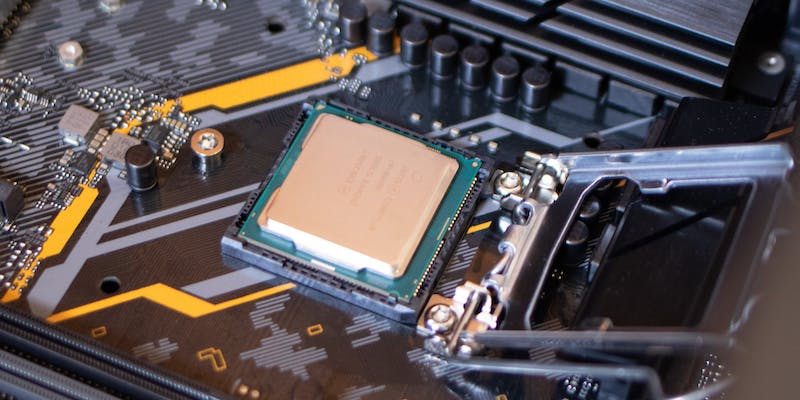The motherboard upgrade cycle is predicted to reach its peak in Q3 2024, as reported by Chinese board channel forums, citing various motherboard partners and industry sources. Both AMD and Intel are preparing to introduce their latest chipsets for next-gen products, with AMD appearing to be more flexible in response to Intel’s choices. Let’s delve deeper into the upcoming motherboard upgrades and the advancements in chipsets from both tech giants.
AMD’s Next-Gen Chipsets
AMD is set to unveil its latest chipsets that will be utilized in next-generation motherboards. With a focus on innovation and performance, AMD aims to provide motherboard makers with cutting-edge options to meet the diverse needs of consumers. However, AMD seems to be mindful of Intel’s chipset choices and is willing to adapt. This flexibility stems from the fact that AMD is in no hurry to release its chipsets, and we will explore why this is the case.
Intel’s Next-Gen Chipsets
Intel has been utilizing the LGA 1700 socket on their two generations of motherboards, namely the 600-series (Z690, H670, B660, H610) and the 700-series (Z790, B760, H710). However, Intel has ambitious plans for a major platform shift in 2024. The upcoming 800-series motherboards will introduce the new LGA 1851 socket, coinciding with the launch of the Arrow Lake-S Desktop CPUs in the second half of 2024.
Intel’s 800-Series Motherboards
The highly anticipated 800-series family will showcase motherboards such as the Z890, H860, and H810. In addition, Intel will offer W880/Q870 chipsets specifically designed for workstations and business products. These next-generation motherboards will bring a host of exciting features and enhancements to the table, catering to the evolving demands of consumers across various segments.
Detailed Specifications
The Intel Z890 platform is expected to feature up to 60 HSIO channels, including 26 CPU and 34 PCH channels. On the other hand, the B860 and H810 platforms will offer 44 and 32 HSIO channels, respectively. These configurations will enable better connectivity options and improved performance for users.
Memory and Connectivity Advancements
Intel’s 800-series platform plans to support DDR5-6400 memory natively, allowing for faster data transfer and enhanced multitasking capabilities. Furthermore, compatibility with 48 GB memory modules will provide users with ample room for expansion and future-proofing their systems. Alongside these memory advancements, Intel is also set to introduce WiFi 7 and 5 GbE (Gigabit Ethernet) support, ensuring seamless connectivity across all segments.
AMD & Intel’s Launch Plans
Both AMD and Intel motherboard partners are targeting a Q3 2024 launch for their respective next-gen platforms. The next-gen 700-series, codenamed ‘AM5,’ from AMD, will complement their latest chipsets and offer a range of exciting features for gamers, content creators, and professionals alike. Similarly, Intel’s 800-series, featuring the LGA 1851 socket, will showcase their advancements in terms of performance, connectivity, and memory support.
Importance and Implications
The upcoming motherboard upgrade cycle, fueled by the introduction of AMD and Intel’s next-gen chipsets, holds immense significance for motherboard makers and the overall PC industry. These advancements will empower users with faster and more efficient systems, enabling them to explore new horizons in gaming, content creation, and productivity. The competition between AMD and Intel will undoubtedly benefit consumers as they will have a wider range of options to choose from, catering to their specific needs and preferences.
As the next major motherboard upgrade cycle approaches in Q3 2024, both AMD and Intel are gearing up to introduce their latest chipsets for next-generation products. AMD’s flexibility in response to Intel’s choices and Intel’s ambitious shift to the LGA 1851 socket on their 800-series motherboards indicate exciting times ahead for PC enthusiasts. With improvements in connectivity, memory support, and overall performance, users can look forward to a significant leap in their computing experiences in the near future.

